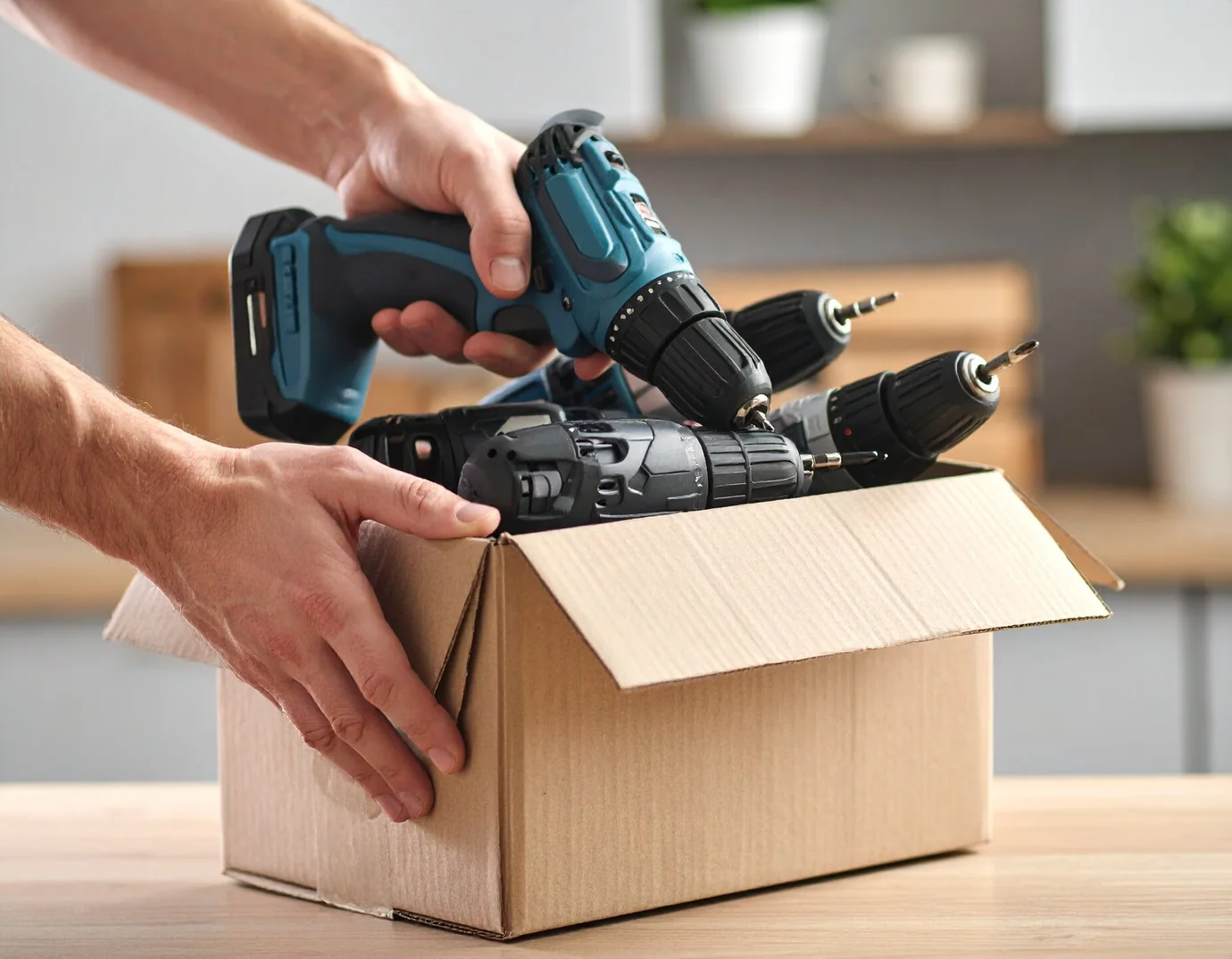Dispose of cordless screwdrivers correctly
A cordless screwdriver is an indispensable tool for many DIY enthusiasts. But even the best tools eventually reach the end of their service life. Proper disposal is not only required by law, it also protects the environment and human health.
A cordless screwdriver is made of various materials:
- Electric motor and electronics: Contains metals and plastics
- Lithium-ion battery: May cause fires if disposed of improperly.
- Housing: Usually made of plastic, often with metal parts
Why not in the household waste?
Cordless screwdrivers and their batteries must never be disposed of in household waste or the recycling bin. They contain substances that are harmful to the environment and health, such as lithium, nickel and heavy metals. If these substances enter the environment, they can contaminate soil and groundwater – and, in the worst case, cause fires.
How to dispose of a cordless screwdriver correctly
There are several ways to properly dispose of your old cordless screwdriver:
- Return in shops: Retailers will take back old devices and batteries free of charge.
- Recycling centre: Municipal recycling centres accept power tools and batteries.
- Hazardous waste collection vehicle: Mobile collection points operated by local authorities for hazardous waste.
- Return to manufacturer: Manufacturers offer take-back programmes for old appliances.
Dispose of battery separately.
The battery should always be treated separately:
- Damaged batteries: Make sure to store them out of reach in a battery protection box and take them to the recycling centre as soon as possible.
- Undamaged batteries: Store in battery protection boxes and dispose of at retailers or municipal collection points.
Why this is important
Proper disposal has several advantages:
- Recovering raw materials: Lithium, cobalt and other valuable materials can be recycled.
- Minimise fire hazard: Improperly disposed batteries may catch fire.
- Protecting the environment: Pollutants do not enter the soil or water.
Good to know: Our fireproof battery containers – such as the RETRON BOX – are not only suitable for the safe storage and charging of lithium-ion batteries, but also as transport containers. However, disposal in household waste is still not permitted.



